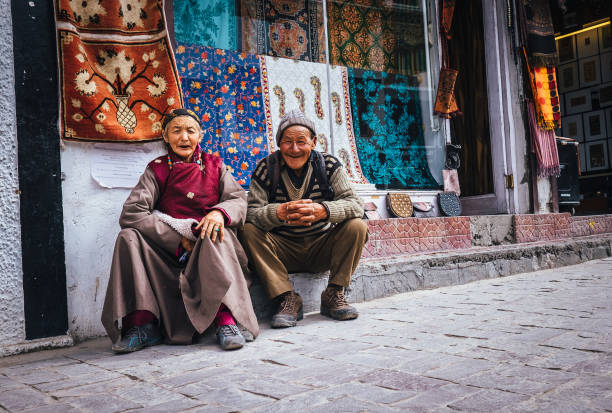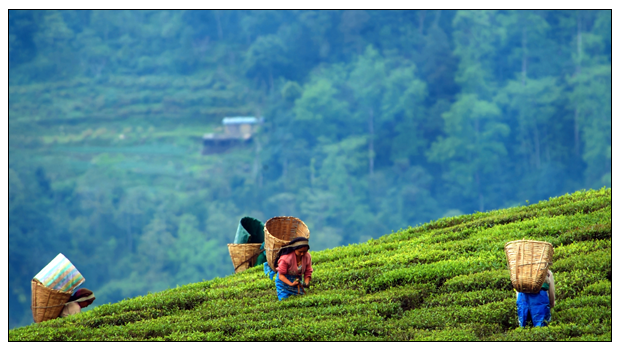The core idea of Rural Tourism is to blend the characteristics of village life with the potential of eco and cultural tourism; to leverage sustainable economic, social and cultural growth of the local community. Travel to Impact is the core principle behind Rural Tourism. It is both a Sustainable and Responsible way of practicing tourism by both the travellers as well as the hosts.
During your travels, there are numerous ways like living with the locals, participating in their daily occupation, teaching village kids, etc. in which travellers can contribute to the well-being of the rural ecosystem. This in turn helps the community in taking lead to promote their culture and heritage in more commercial as well as sustainable ways. And you, as a traveller, can enjoy both the destination and also create impact.
Here are 5 ways that make Rural Tourism beneficial to every stakeholder involved in it including the travellers, and rural service providers:
1. Boosts the Rural Economy
Rural Tourism increases the influx of travellers since these offbeat places offer a beautiful and relaxing ambiance. This thereby enhances the economic growth of remote rural regions. This ensures stable income to the local community through various aspects – employment, entrepreneurship, or investment.
Locals including women and youth get the chance to involve themselves in entrepreneurial activities that not only enable their skills and knowledge but also generate a sustainable means of income for the community. This decreases the migration of the population due to a lack of employment opportunities in their native place enabling the community’s wellbeing.

Image Source – iStockPhoto
2. Promotion and Preservation of Local Products
Rural Tourism opens up a new avenue to showcase indigenously manufactured products ranging from arts, handicrafts, textiles, to souvenirs, and food products, along with folklores, architecture, and much more. This increases the revenue of the people, thereby increasing the living standards.
This also adds to the promotion of these arts and crafts outside the delimited geographical area where they are manufactured. The increase in demand for these products also helps to keep alive and preserve these authentic talents and crafts. The advent of rural tourism has proved to be a boom for the handloom, coir, and clay pottery industries
Image Source: https://www.keralatourism.org/
3. Promotion and Preservation of Cultural
Every place has its own set of traditions and cultural practices that they follow. Rural Tourism offers the opportunity for travellers to engage, participate and experience these traditions.
People belonging to diverse cultures, and beliefs travel to the rural communities creating a major scope for cultural exchange. This helps to promote the traditions of the native across the nation as well as the world.
This in a way also helps in preserving the practices particular to those areas from getting lost forever. It helps in the preservation of the history and heritage of the people and place amidst the increasing urbanization and modernism.
Image Source: https://www.keralatourism.org/
4. Experiencing the authentic Village life
The rural backdrop of lush green villages, narrow streets, organic produce, and above all the warmth of the people, serves as a refreshing and relaxing change to people who are constantly caught in the hustle culture.
Get the chance to Live with the Locals and enjoy the meals cooked by locals with the organically grown vegetables and fruits from their farm. Experience Slow Living in rural areas and learn to cherish every moment of your life. Go out for those village walks and hear the village talk all around the day. End your day with a hot cup of tea and some storytelling.
5. Nurture a pro-environment mindset
The concept of Eco-tourism is essentially embedded in Rural Tourism. It has a greater goal of encouraging the preservation and protection of natural resources like rivers, forest lands, sacred groves, and mountains, as well as native flora and fauna, aquatic life, etc.
Rural Tourism helps to develop a consciousness towards the biodiversity found in the rural areas. It helps to generate awareness among both the natives and the travelers and promotes the preservation and conservation of the natural environment and its inhabitants.

Image Source – https://www.24mantra.com/blogs…
The scope of being able to practice Sustainable Development is quite high in the case of Rural Tourism. This is what is making it more and more popular amongst travelers these days. Experiential Travel is becoming a popular choice when it comes to Rural Tourism. This type of travel allows travelers to experience and cherish the smallest of things while ensuring the enhancement of the living standards of the locals and awareness of their culture, history, and heritage.
With advancement in technology and accessibility of resources, the multiple stakeholders of the tourism sector including both government and private organizations are working to accelerate the growth and development of rural areas. NotOnMap takes the initiative to promote Responsible Rural Tourism by creating economic opportunities for the locals while offering you once in a lifetime experience.
The core of rural tourism is key to imparting the value and significance of these elements in our existence which is bound to trigger an effort toward their conservation.
Text taken from: https://notonmap.com






